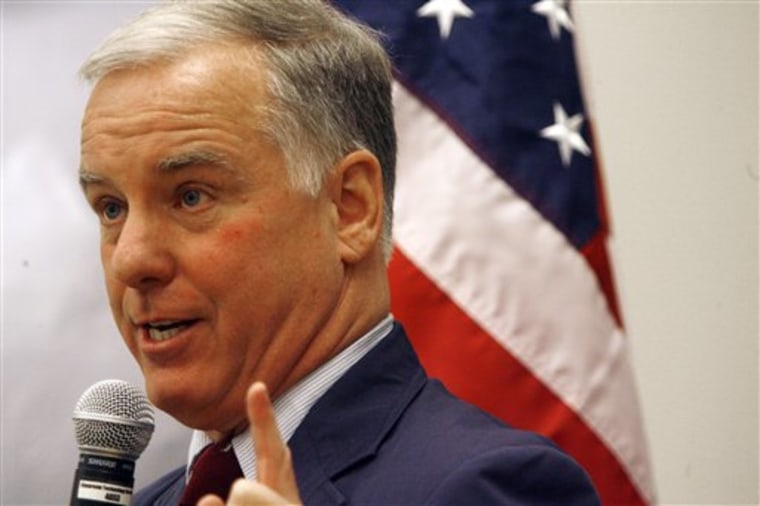A consensus began to emerge Sunday that the best way to give Florida's Democrats a voice in electing a candidate for president lies with the U.S. Postal Service.
The Democratic National Committee stripped Florida and Michigan of all their convention delegates — a total of 313 — for holding their primaries too early, making both contests meaningless. New York Sen. Hillary Rodham Clinton won both states, but no delegates. Her rival, Illinois Sen. Barack Obama, did not appear on Michigan's ballot.
But the disqualification of Florida and Michigan has created a headache for the Democratic party due to the unexpected closeness of the race between Obama and Clinton. Officials from both states are trying to figure out how best to resolve the issue before the national convention in August.
DNC Chairman Howard Dean said a mail-in primary is "actually a very good process."
"Every voter gets a ballot in the mail," the former Vermont governor said on CBS's "Face the Nation." "It's comprehensive, you get to vote if you're in Iraq or in a nursing home. It's not a bad way to do this."
As for who pays, Dean said, "That is a problem," reiterating that the party needs its money for the general election campaign against Republican John McCain.
He also ruled out the state of Florida, where Republican Gov. Charlie Crist has nixed the idea. Dean suggested the state Democratic party might foot the bill. Florida's political parties, unlike the DNC, can accept unlimited contributions.
Sen. Bill Nelson, D-Fla., supports the mail-in solution, comparing it to an absentee ballot process. He also pinned his hopes on the state party to pay for it.
"Since Governor Dean has said he's not going to do it in the DNC, the Florida Democratic Party's going to have to go out and raise the money," he said. "We're looking at about $6 million."
Sen. Carl Levin, D-Mich., appeared to be amenable to a mail-in solution for his state, though with less enthusiasm.
Speaking on ABC's "This Week," Levin said doing the election again would be against state law. "That can't be changed, and that can't be paid for," he said. Levin also said caucuses would be difficult, with 500 potential sites.
"The one possibility would be some kind of a mail-in caucus," he said. "But there's some real problems with that, too. Not just cost, but the security issue. How do you make sure that hundreds of thousands, perhaps a million or more ballots can be properly counted and that duplicate ballots can be avoided?"
Obama currently has more delegates than Clinton, but that could be eclipsed if Clinton were to win a large enough portion of Florida and Michigan's delegates.
